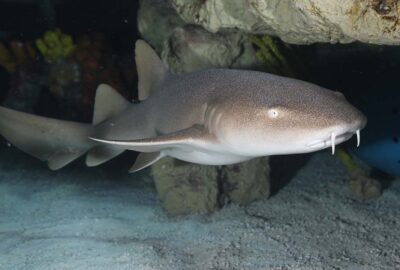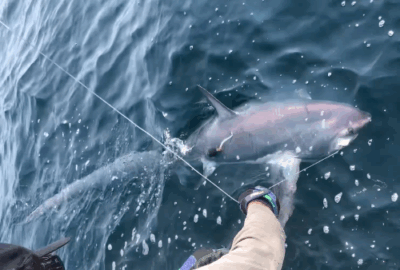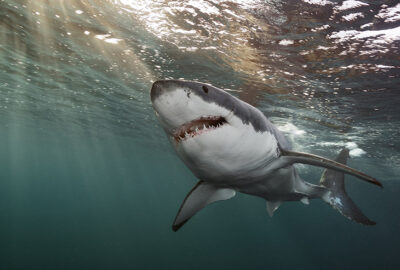Construction Update: As we enhance the look and feel of the Aquarium and make structural improvements to the penguin exhibit, some exhibits are temporarily closed, and the penguins are off exhibit until February 13. Learn more.
Haiti Ocean Project
Researchers and local fishers collaborate to study and protect endangered sharks in Haitian waters.
By New England Aquarium on Wednesday, October 09, 2019

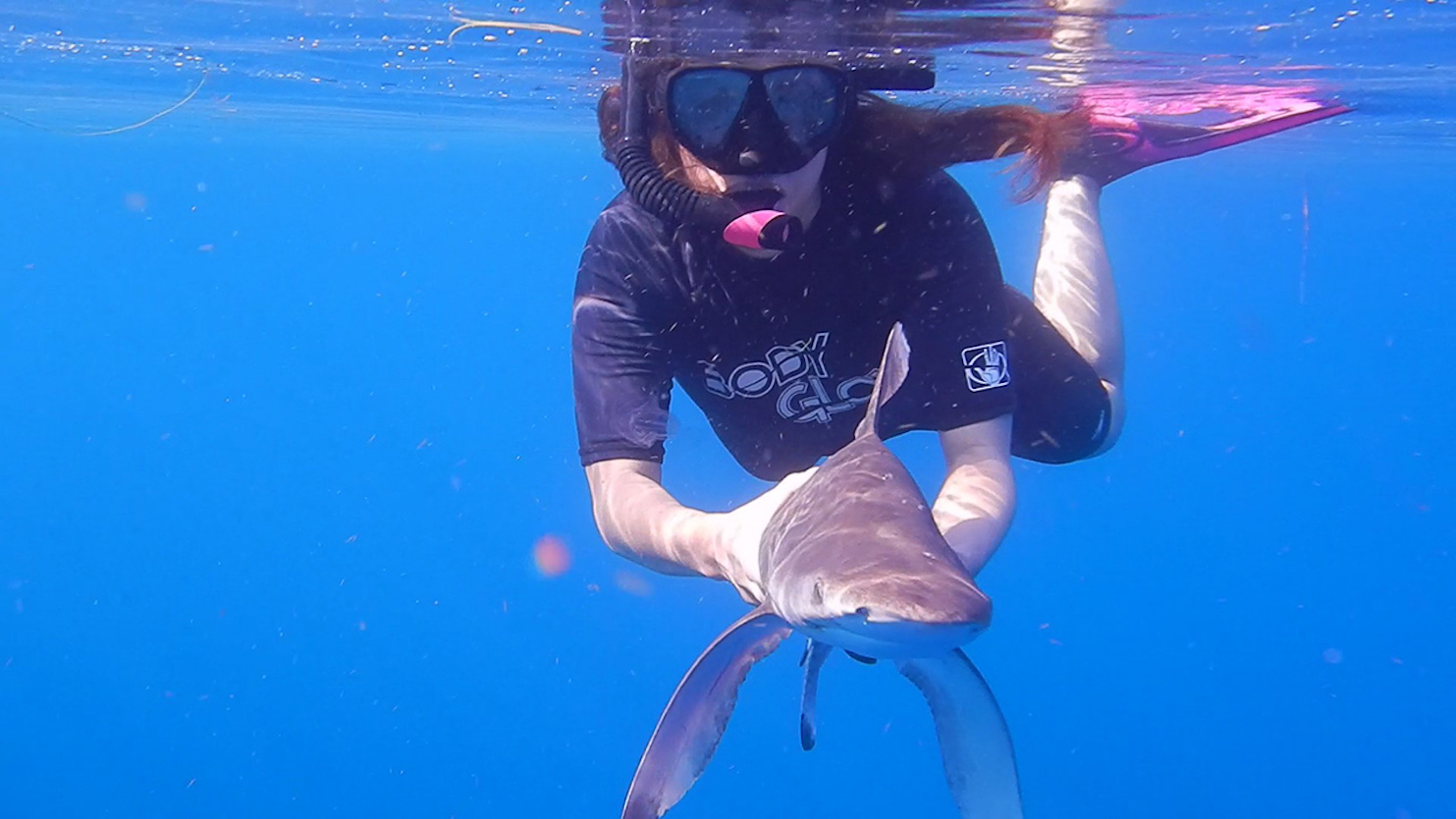
Note – published in Oct 2020 but backdated for sequencing purposes.
This post is one of a series on projects supported by the New England Aquarium’s Marine Conservation Action Fund (MCAF). Through MCAF, the Aquarium supports researchers, conservationists, and grassroots organizations around the world as they work to address the most challenging problems facing the ocean.
In 2017, with support in part from MCAF the Haiti Ocean Project (HOP) launched a marine ecosystem monitoring network in collaboration with local fishers to gather data on top level species in the Canal de la Gonave, Haiti. The network made many exciting discoveries including documenting numerous sightings of juvenile oceanic whitetip sharks. In this post Jamie Aquino, President and Founder of the HOP and Claude Pressoir, HOP’s shark coordinator, talk about their efforts to study and protect this population of critically endangered sharks in Haitian waters.
Pour le français, cliquez ici pour la version de cet article.
Pou kreyòl, klike isit la pou vèsyon pòs sa a.
By Jamie Aquino and Claude Pressoir
Haiti Ocean Project has been dedicated to Haiti’s endangered marine species for over a decade, namely marine mammals, sharks, stingrays, and sea turtles. However, we did not realize the extent of our shark populations until 2017, when we received our first ever grant from MCAF, to start a marine ecosystem monitoring network of top-level species along the Canal de la Gonave. This grant helped us put smartphones and marine species ID guides (which we produced) in the hands of fishermen, who quickly became our allies. It was this crucial, grassroots link which provided us with information that we had sightings and the presence of critically endangered juvenile oceanic whitetip sharks.
That led to an expedition last summer to Haiti, aboard the OceanX M/V Alucia research vessel, in which we placed a satellite tag on the smallest oceanic whitetip the team had ever tagged and the first in Haiti history. Also, on the trip were shark researchers Dr. Mark Bond and Lucy Howey, both of whom are officially part of Haiti Ocean Project and Ryan Knotek, a researcher working with the Anderson Cabot Center for Ocean Life, who was studying the stressors related to capture.
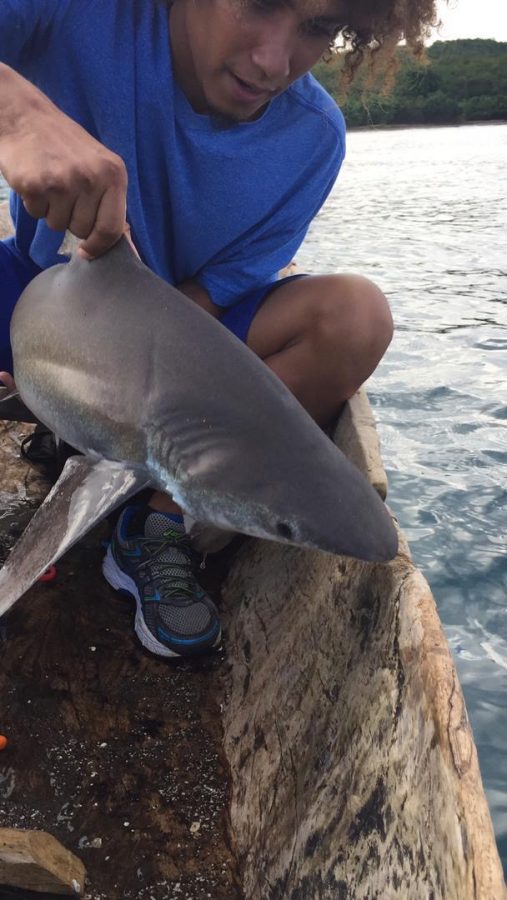
This OceanX expedition gave our shark coordinator Claude Pressoir a big spotlight, as he showcased his ability to take measurements, determine the sex, remove the hook, and release a juvenile oceanic, all on his own. His passion for Haiti’s sharks and his interest in learning more about how to help these important ocean creatures, prompted Cape Eleuthera Institute to offer Claude an internship. He started his internship in Eleuthera, Bahamas in January 2020, where he has since learned how to place satellite tags on sharks and even became scuba certified.
While only one juvenile oceanic was tagged on the M/V Alucia trip, Claude’s job is now to place additional satellite tags on more juvenile oceanics. However, before that happens, it is important that we learn more about their migration patterns in Haiti waters. As the first satellite tagged juvenile from the OceanX trip eventually was caught and killed by a fisherman two months later in another part of the southern coastline, we realized these young sharks might travel farther than initially thought. That led to a follow-up grant from MCAF, to explore the remainder of the southern coastline, which we believe would tell an even more interesting story about this special population of sharks.
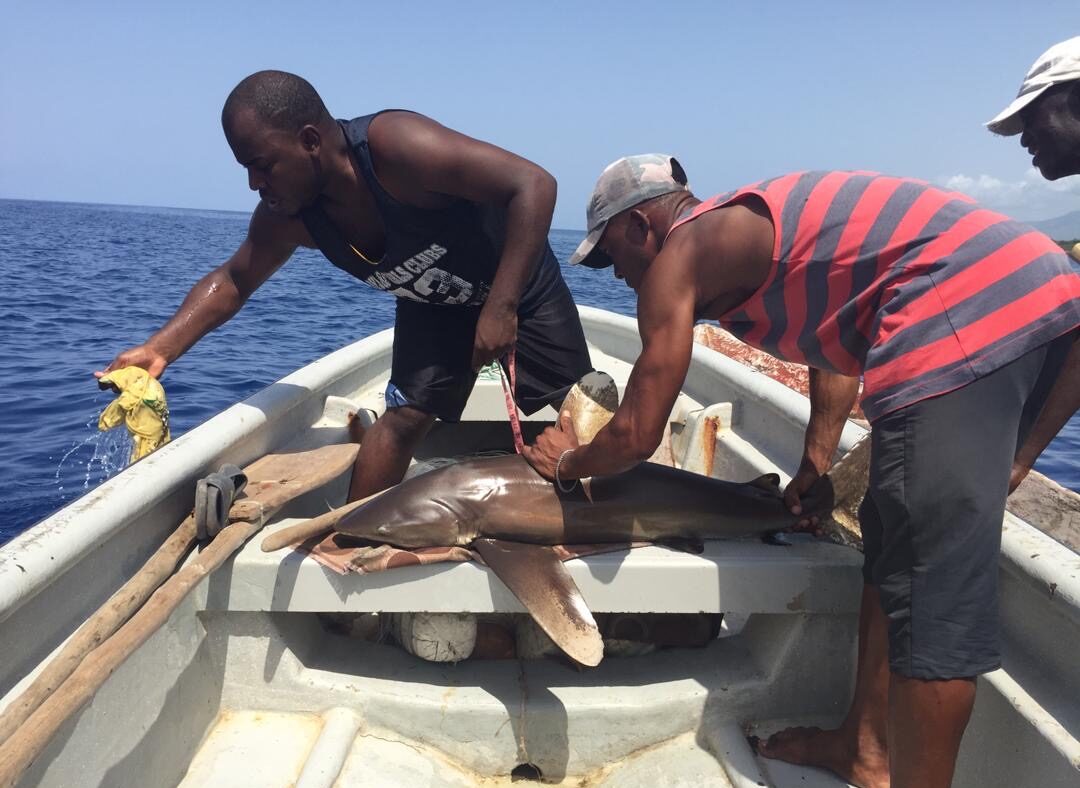
As COVID-19 has seemingly affected conservation work in general over the past several months, we have been fortunate to continue our work without interruption. Knowing that our local fishermen were still fishing and catching sharks, we knew we had to continue as well, to keep our trend going of saving sharks. In fact, since the M/V Alucia trip last summer, we have successfully released 58 juvenile oceanic whitetip sharks and two sub-adults, and will be sending the samples of all these oceanics to a lab in the United States for genetic testing.
Last month, we got a video of an adult female oceanic shark being killed, with 12 pups inside. This occurred in a small fishing village called Abricots, located near the tip of the southern peninsula, and an area we had been interested to visit at some point in the future. Thanks to MCAF, we had the ability to travel to this village, and other nearby villages, to learn more about the oceanic sharks those fishermen were catching. What we discovered is the fishermen in this area, like ours, were catching these sharks on a regular basis, in addition to other sharks and even cetaceans. Interestingly, the oceanics they are catching are bigger, many in the sub-adult range.
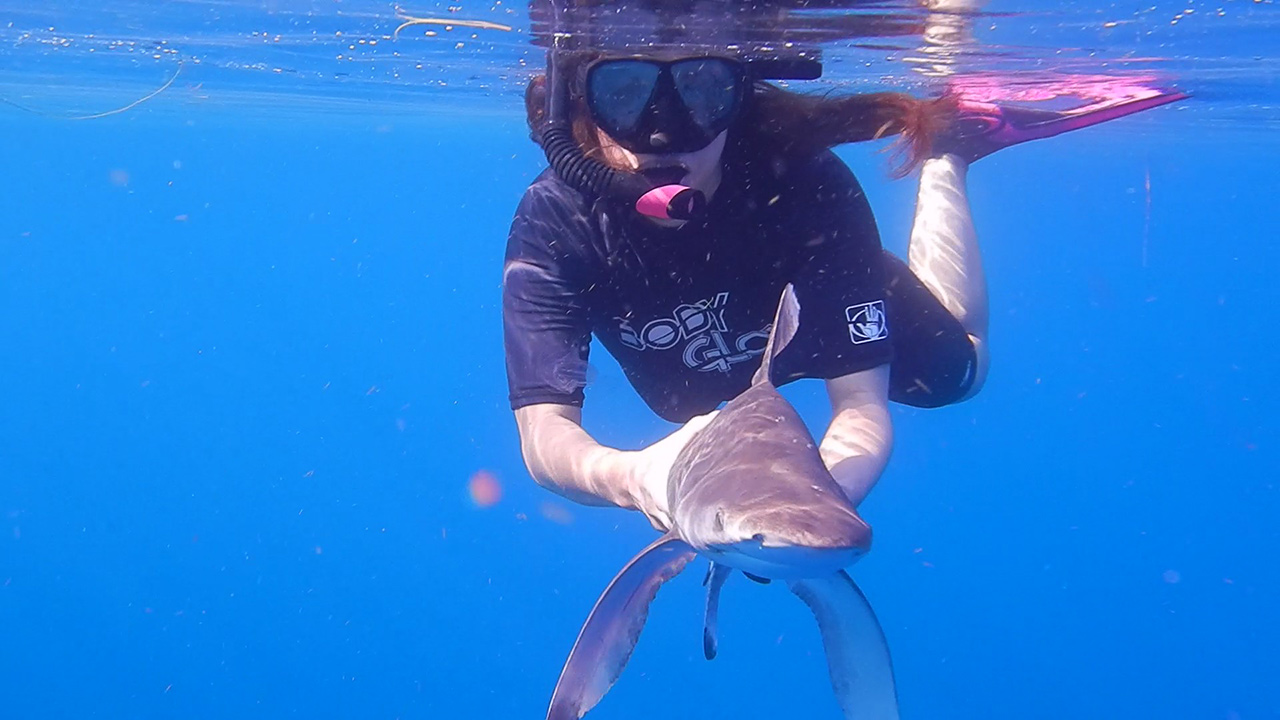
Our plan of action involves continued marine education seminars and trainings in fishing communities along the inner southern coastline. We will also conduct training sessions with local fishermen on how to conduct work ups and release of sharks. Traditionally, Haitians grew up fearing sharks, even the local fishermen and those living in the fishing communities. It is up to us to not only change people’s mindsets in Haiti about sharks, but also emphasize the value these important marine species have in the ocean. We still have a great deal of work, but we have made tremendous progress so far.


